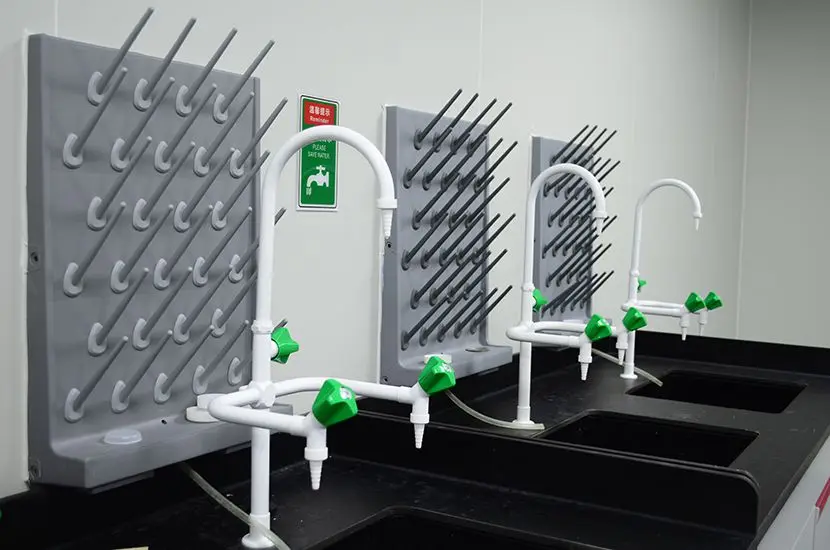
ISO-10993 Subchronic Systemic Toxicity Test
Toxicology animal tests can be categorized based on the exposure duration into four types: acute, subacute, subchronic, and chronic toxicity tests. The latter three are collectively known as repeated-dose toxicity tests.
- Acute toxicity: Refers to toxic effects that occur after a single (or mULtiple exposures within 24 hours) contact with a foreign compound, which can even result in death.

- Chronic toxicity: Refers to toxic effects caused by long-term, low-dose exposure to a cheMICal, typically with an exposure period of ≥6 months.
- Subacute toxicity: Refers to damage to the body's function and/or structure caused by short-term exposure to toxins (usually about 3 months or ranging from several days to months). It is often described by toxic reactions, toxic doses, target organs, no-effect levels, and pathological histological changes. It lies between acute and chronic toxicity, sometimes difficult to clearly define.
- Subchronic toxicity: Refers to toxic effects that occur after continuous exposure to relatively high doses of a foreign compound over multiple days.
Toxicity Test Types:
Toxicology animal tests are divided into four types based on exposure duration:
1. Acute toxicity: Single or multiple exposures within 24 hours.
2. Subacute toxicity: Short-term exposure, typically within a few weeks to 3 months.
3. Subchronic toxicity: Moderate-term exposure.
4. Chronic toxicity: Long-term exposure, generally ≥6 months.
Applicable Standards:
- ISO 10993-11
- GB/T 16886.11
- USP 88
- DIN EN iso 10993-11-2009: Biological Evaluation of Medical Devices, Part 11: Systemic Toxicity Tests.
- GB/T 16886.11-2011: Biological Evaluation of Medical Devices, Part 11: Systemic Toxicity Tests.
- iso 10993-11-2006: Biological Evaluation of Medical Devices, Part 11: Systemic Toxicity Tests.
- YY/T 0127.14-2009: Biological Evaluation of Dental Medical Devices, Unit 2: Test Methods for Acute Oral Systemic Toxicity Test.
- YY/T 0127.15-2018: Biological Evaluation of Dental Medical Devices, Part 15: Subacute and Subchronic Systemic Toxicity Tests via Oral Route.
Test Descriptions:
- Acute toxicity tests: Involve single or multiple exposures within 24 hours and are the first step in toxicity studies. They require the use of two types of animals (rodents or non-rodents, typically mice or rats) and use oral, inhalation, or dermal routes of exposure.
These tests measure:
- Median lethal dose (LD50) or concentration.
- Acute poisoning symptoms.
- Dermal absorption capacity.
- Local irritation effects (to skin, mucous membranes, and eyes).
- Chronic toxicity tests: Help determine the lower limit of toxicity for foreign compounds by identifying the threshold dose and no-effect dose for long-term exposure. This provides toxicological evidence to assess risks and establish safe exposure limits for humans, such as maximum allowable concentrations and daily intake limits.
- Subacute toxicity tests: Further evaluate the impact of a test substance (additives) on major organs and physiological functions based on acute toxicity test results. They estimate the dosage at which effects occur and prepare for chronic toxicity tests.
The subacute toxicity period is typically 2 to 4 weeks.
Email:hello@jjrlab.com
Write your message here and send it to us
 Cost of U.S. FDA CFR 21 177.2600 Test Report
Cost of U.S. FDA CFR 21 177.2600 Test Report
 How much does the IP44 Compliance Test cost
How much does the IP44 Compliance Test cost
 What is LFGB Test
What is LFGB Test
 What does LFGB certified mean?
What does LFGB certified mean?
 Weee authorised representative germany
Weee authorised representative germany
 Where to Apply for 2026 Air & Sea Transport Ce
Where to Apply for 2026 Air & Sea Transport Ce
 Guide to IEC Test Reports for Lighting Exports
Guide to IEC Test Reports for Lighting Exports
 IEC/EN 62471 and IEC/EN 62778 (Photobiological Saf
IEC/EN 62471 and IEC/EN 62778 (Photobiological Saf
Leave us a message
24-hour online customer service at any time to respond, so that you worry!




